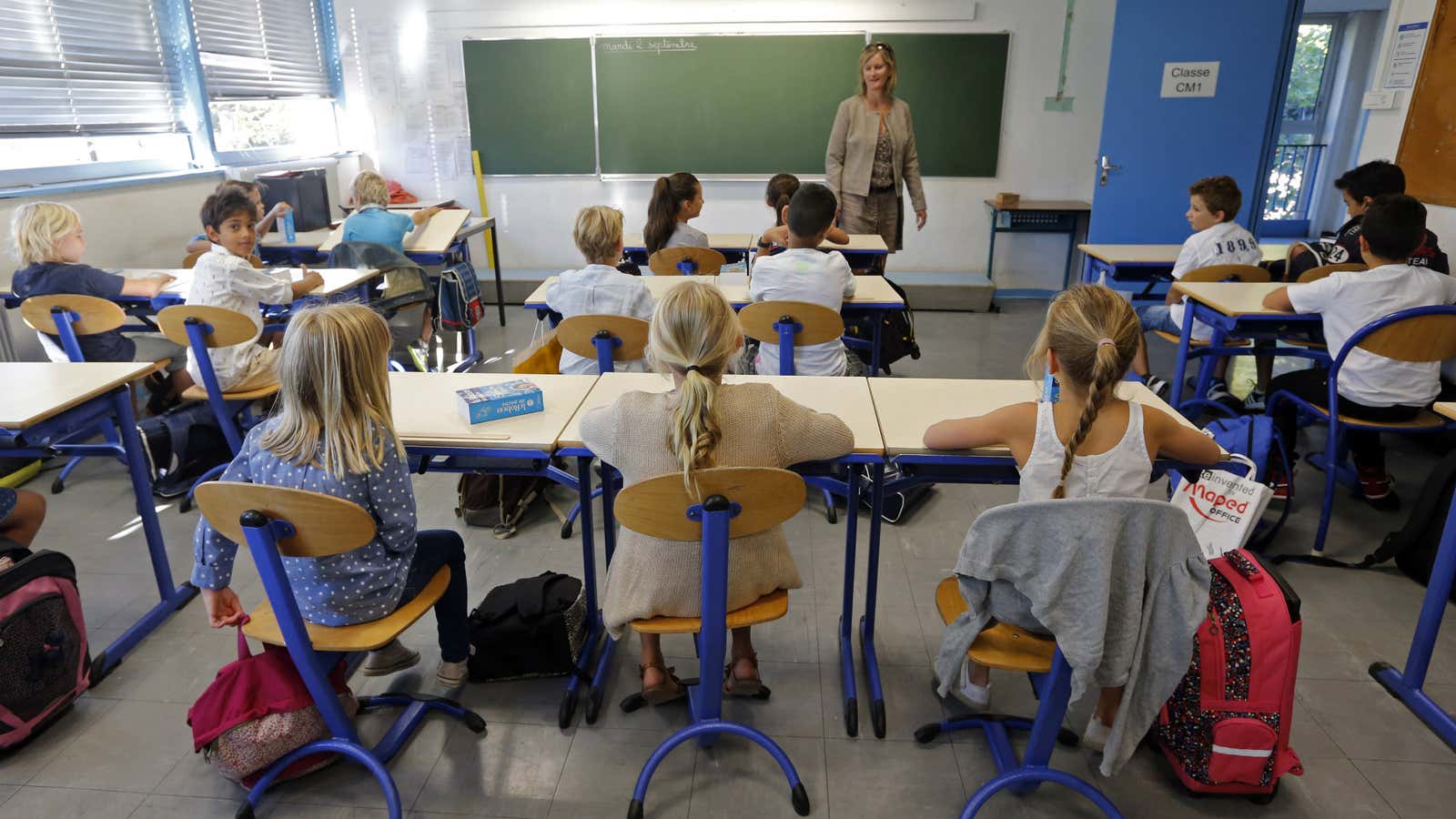Studies have shown that high parental expectations are associated with high academic achievement. But setting expectations too high is counterproductive, new research shows.
When parents had high aspirations for their children’s achievement in math, the kids in this study performed well in math. But if the parents’ hopes were unrealistic, their children’s math performance suffered.
“Although parental aspiration can help improve children’s academic performance, excessive parental aspiration can be poisonous,” said lead author Kou Murayama of the University of Reading in a release. The study was published in the Journal of Personality and Social Psychology.
Murayama and his co-authors studied data from 3,530 secondary students and their parents between 2002 and 2007 in Bavaria, Germany. The study assessed math achievement as well as parental aspiration, which was defined as how much parents wanted their child to earn a particular grade. They also measured parental expectation, or how likely parents thought their kids could actually achieve those marks.
The researchers found that high parental aspiration led to increased academic achievement, but only when it did not overly exceed a realistic expectation, or what was dubbed “overaspiration.” When aspirations exceeded expectations, children’s achievement decreased proportionately. To test their work the researchers tried to replicate the findings using data from a two-year study of more than 12,000 US students and their parents. The results were similar.
The question of how hard to push kids torments many parents. Amy Chua didn’t help: her 2011 memoir Battle Hymn of the Tiger Mom explained how she banned her kids from sleepovers, playdates, TV, and computer games, instead making them focus on school and piano. This sent parents into paroxysms of guilt over whether they were tough enough. Even those who thought she sounded a bit nuts, and I am talking about myself here, felt the need to reassess. Were my expectations high enough? My discipline strong enough? My kids were addicted to Sesame Street—were they doomed?
Murayama’s research has some unnerving policy implications. If high expectations lead to better results, programs aimed at improving academic achievement should naturally incorporate a focus on higher expectations. But they should aim not too high nor not too low. It is maddeningly nuanced.
“Simply raising aspiration cannot be an effective solution to improve success in education,” Murayama said.
But here’s the silver lining. If you know your kid, and you are honest about what kind of kid you have, then you should be able to set realistically high expectations. You don’t send a middling academic kid to Eton, nor do you tutor a struggling kid to get her into Harvard. Because life at Eton, or at Harvard without a tutor, is a hotbed of achievement that can be daunting for all but the most academically able kids (whose parents somehow set exactly the right level of aspiration during their formative years).
